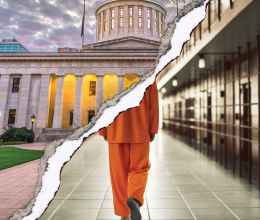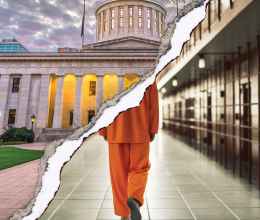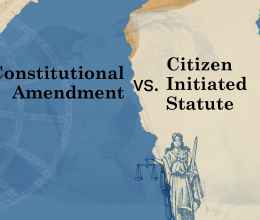What happens when delegates from various continents are in one room together to talk about democracy?
Last month we found out.
In early February, we met with emerging leaders representing Argentina, Botswana, the Republic of Korea, Spain, and Tajikistan as part of a professional exchange program sponsored by the U.S. Department of State International Visitor Leadership Program. One of the objectives of the program is to demonstrate successful models of cooperation among state and local governments, non-governmental organizations, and community organizations. The delegates were interested to find out how the ACLU works in cooperation with others to advance civil liberties, particularly with regard to criminal justice and police practices.
After providing some context on how we employ advocacy, public policy education, and litigation to accomplish our goals, we discussed the importance of encouraging people to participate in their government.
Mechanisms for Police Oversight
Before delving into the systems we have in place for holding our police accountable, we wanted to know how the represented countries handle police oversight. For most, there is an ombudsman, human rights department, or lawyers’ association that people can contact to get help if they experience an issue with police. In some countries, urban populations use mass media to inform the public of police issues. Police also wear body cameras as an accountability measure.
Like the United States, these processes are accessible, but are not always effective in these countries. We explained that while our police exist to protect and serve, there can often be a major breakdown in the system. The Department of Justice report made this very clear, and we shared the ACLU of Ohio’s recommendations for police reform.
We discussed problems with police use of excessive force and the impact it has on our communities. Many questions were raised about police training, the grand jury system, and the different types of police forces that exist in the United States. The delegates noted that such uses of force by police officers, even the use of stun guns, are prohibited in their countries as they violate human rights.
Inequality Within Our Criminal Justice System
Stunned at the lack of training and dire need for reform, the delegates wanted to know more about inequality within our criminal justice system.
Some seemed surprised to find out that the United States isn’t necessarily the “land of the free.” This country has more incarcerated individuals—disproportionately African-American—than any other country in the world. This is very different from some of the representatives’ countries, which are moving away from expensive, lengthy-sentence incarceration models.
In this country, incarcerated women are cuffed and shackled to beds as they give birth. In other countries, incarcerated mothers are allowed to provide a more nurturing environment for their babies.
In the United States, children can go to jail. They are shackled in courtrooms. They must walk through metal detectors in order to enter their schools to learn.
An Opportunity to Learn From One Another
In a democracy, power is given to the people. It is up to the people of the United States, Argentina, Botswana, the Republic of Korea, Spain, Tajikistan, or any other democratic nation to use that power to change policies.
There are serious problems existing in our countries, some of which are very shocking. We have to face these unpleasant realities in order to fully understand the many ways they affect our lives and what we can do to participate in making positive change.
Learning from each other is an important step. We can use that knowledge to strengthen our freedoms.







